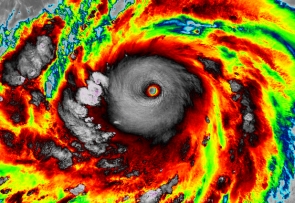Call for Abstracts
Session NH9.8
Geoethics: Ethical Challenges In Communication, Geoeducation And Management of Natural Hazards
Convener: Silvia Peppoloni
Co-Conveners: Susan W. Kieffer, Eduardo Marone, Yuriy Kostyuchenko, Joel Gill
Session description:
Geoethics deals with the ethical, social and cultural implications of Earth Sciences education, research and practice and the social role and responsibility of geoscientists in conducting their activities. It concerns theoretical and practical aspects of decisions regarding management and mitigation of geohazards, use of geo-resources, development of geoeducational strategies and the search for solutions to geo-environmental problems. Geoethics should become an essential point of reference for any action on land, water and atmosphere use for which all stake-holders and decision-makers are held accountable.
The 2012 and 2013 sessions on Geoethics at the EGU General Assembly were a great success and demonstrated the urgent need for the scientific community to reflect on how to best serve society, improve the quality of human life and promote sustainable development on planet Earth.
Among the critical ethical issues faced by geoscientists, natural hazards have a primary importance. The deaths, injuries, displacement and economic costs associated with them are increasing, in part due to rapid population increase, occupation of marginal/unsafe land and the misuse of land.
Many natural disasters can be prevented and/or their impact reduced. Geoscientists must play a fundamental role in protecting society, by educating the youths, communicating their knowledge and scientific results to the public and policy makers. This includes suggesting models, methods and ideas to inform and influence decision making for risk reduction programs, designing and implementing risk reduction strategies, organizing geoeducation activities and promoting environmentally sustainable and/or socially compatible use of natural resources.
Conveners invite authors to submit abstracts with their views, reflections, suggestions and experiences in an ethical perspective that could be helpful in understanding problems and finding solutions for a successful interaction between scientific community, media, institutions and local populations, with the overall aim of improving the effectiveness of measures to protect people and their assets from natural hazards.
The session is organized by the IAPG - International Association for Promoting Geoethics (http://www.iapg.geoethics.org/).
The abstract submission deadline is 16 January 2014, 13:00 CET.
In case you would like to apply for financial support, please submit an application no later than 29 November 2013.



